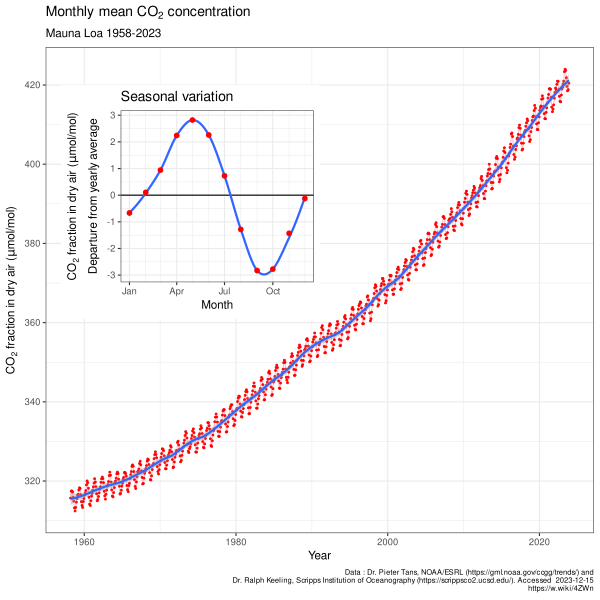[meme image that cannot be quoted]
I mean, can you point to where on atmospheric CO2 levels charts we globally started taking CO2 emissions seriously?

Or where energy efficiency gains really started having an impact? Oil and coal are flatlining or dropping slightly, but this is more a reflection of the fact that we're running out of the easily affordable options there (note that I did not say "running out," I said "running out of easily affordable" - yes, there's an important difference, and, yes, it shows up in energy returned on energy invested numbers too).

All the charts are, to use the favorite of silicon valley sorts, "Up and to the right!" We use more energy, with more emissions, and the drop in the bucket that is renewables doesn't even keep up with the increase in global energy use - the renewable rampup, as you note, is happening while natural gas keeps rocketing skyward. And from a greenhouse gas perspective, that's quite worrying, as every time we look, more methane is present than is "supposed to be."
... maybe it is just an engineer not liking how messy people are...
Yes. People are messy. And trying to incentivize people based on methods that have never, throughout history, worked well, won't work any better this time around.
To paraphrase how
many people in the country view the current things:
You! Yes, you, mouth breathing redneck, down there in bumblefuck county, flyover state! Quit voting against your own best interests! I, up here in my private jet, on the way to yet another international climate conference, demand you reduce your emissions, and if you don't, why, the planet will be come uninhabitable for me and my fellow jetsetting class! Why, coastal cities we fly between regularly, which I'm sure you've never been to, will be flooded!Of course, don't ask them what their actual carbon emissions are, up there. Why, they
offset their emissions! No, no, it's not carbon indulgences, it's very effective remediation of emissions, as long as you don't actually look into it more than "Did it charge my credit card properly so I can be guilt free?"
And so on. Hasn't worked yet, probably won't work any time soon. Insulting people into your position doesn't work.
Down in the lands where money matters, it's not escaped people that most subsidies from on high seem to manage to just increase the cost of goods by right about the cost of the subsidies. I know some who, not unreasonable, have referred to the 30% solar tax credits as the 30% solar company profit enhancement credit. They're not wrong, either. And when you've had a never ending wave of door to door solar slimeballs who want to convince you that a $4.50/W system, financed, is a reasonable thing for a family that pays very little in federal taxes,
after having walked past your solar arrays to get to the door, well...
Heat pumps are nice enough, but they're hardly a slam dunk operating cost win over natural gas in most areas, and if you're used to a gas furnace, heat pumps are objectively worse at "pumping hot air out of the vents." If you have children and a natural gas furnace, how many curl up over vents in the winter? If you have a heat pump, have you ever seen them do this?
There are no shortage of reasonable arguments that can be made, but I almost never see them in the places I frequent.